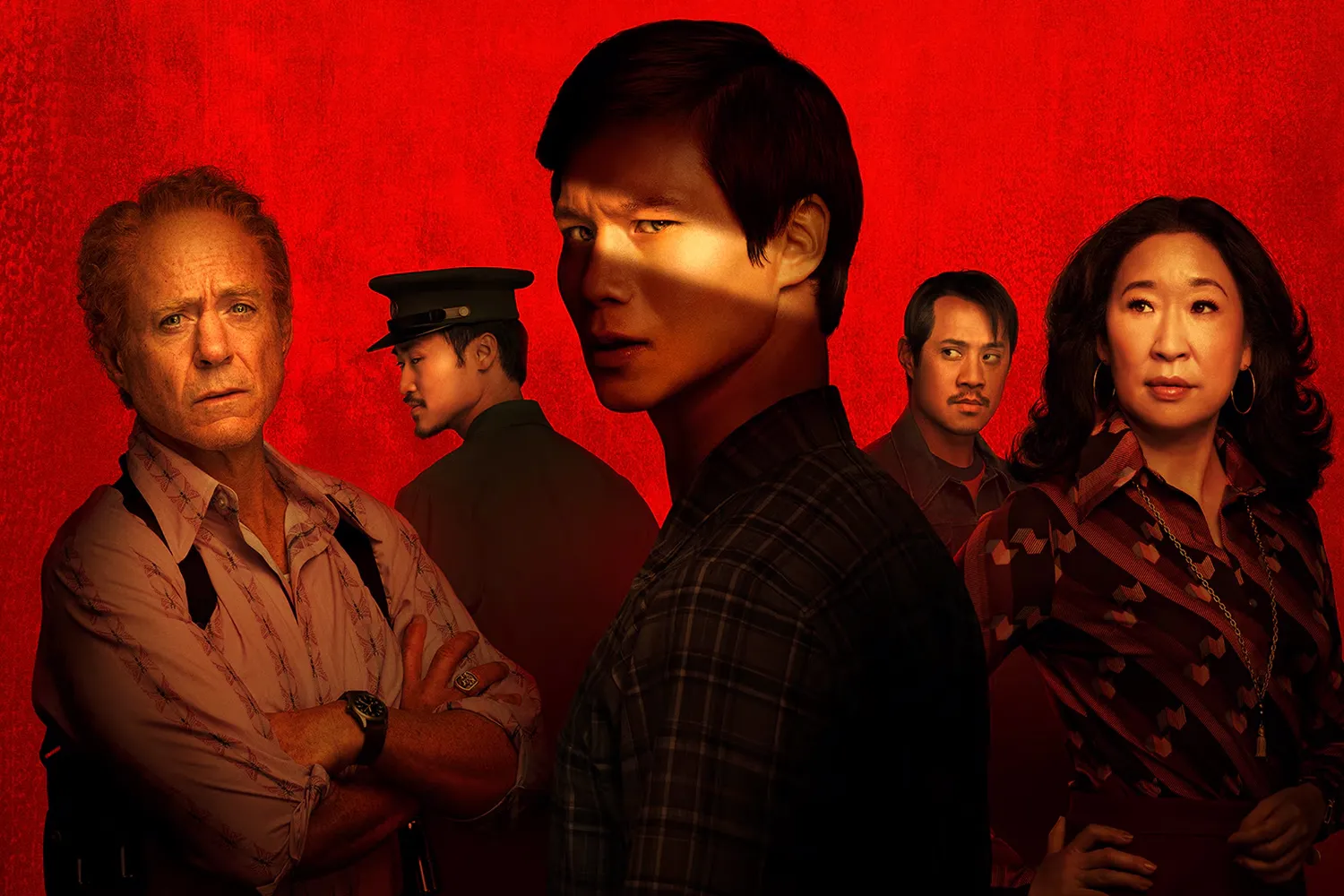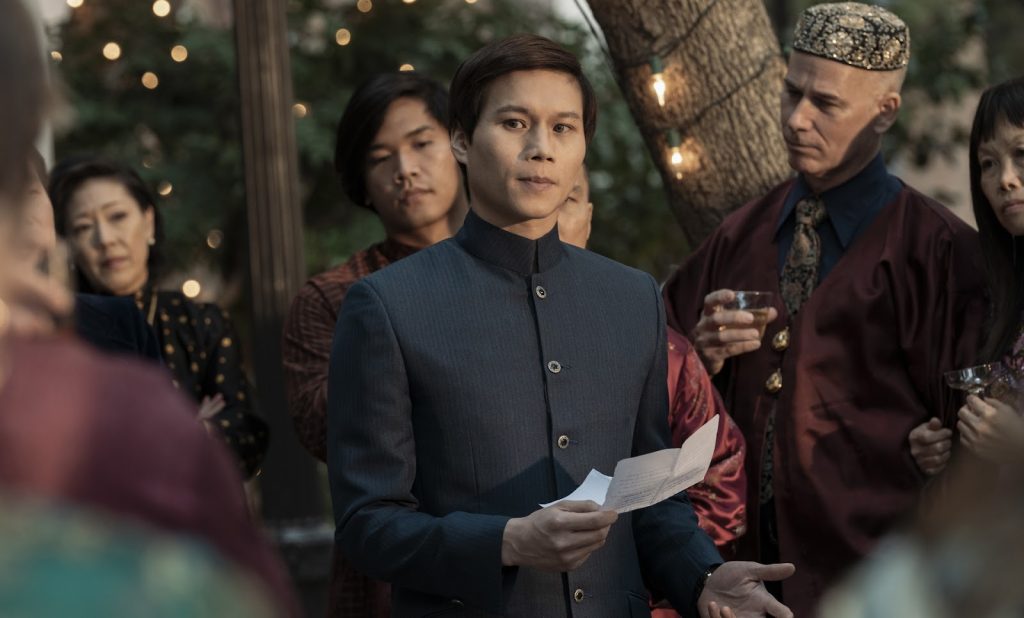FILM TV
What ‘The Sympathizer’ Gets Right About Mixed Identity – And Where It Goes Wrong

When I heard HBO was adapting Viet Thanh Nguyen’s Pulitzer-Prize winning novel The Sympathizer, I knew we were in for something ambitious. A series about war, exile, espionage, and identity is not your average Sunday night watch.
But after watching several films and series that attempt to tackle mixed identity, I braced myself. Stories like this rarely get adapted, and when they do, Hollywood tends to flatten the nuance, lean into stereotypes, or worse, turn complex identity into visual flair without emotional weight.
Now that I’ve watched the entire season, I can say this: The Sympathizer doesn’t play it safe. It’s sharp, satirical, and sometimes infuriating. It nails painful truths about living between cultures and allegiances, especially when that identity is shaped by colonialism, war, and Western imperialism.
But it also fumbles. At times, the show seems more interested in playing with genre and performance than sitting in the discomfort of the subject matter.
So, let’s talk about what The Sympathizer gets right about mixed identities and where it misses the mark.
The Double Agent as a Metaphor for Mixed Identity

From the opening scene, it’s clear that the Captain – played with calculated ambiguity by Hoa Xuande – is a man split in two. A North Vietnamese spy embedded in a South Vietnamese military unit who later flees to America, he is a man between worlds.
His political duplicity may drive the plot, but it’s his mixed-race identity that shapes the core of who he is, how he moves through the world, how he’s perceived, and how he sees himself. Born to a French Catholic priest and a Vietnamese mother, he’s treated as “the bastard” throughout his life.
Too white to be fully accepted by Vietnamese nationalists, too Asian to be seen as human by his American handlers, he is perpetually othered, no matter which side he’s on. This mirrors real historical accounts. As Viet Thanh Nguyen explains in a Financial Times interview, the Captain’s mixed heritage, “half-French… perfect English accent and a perfect Vietnamese accent,” was designed to reflect a life lived between cultures, where one is always under scrutiny.
Children of American GIs and Vietnamese women were often shunned and placed in orphanages or left behind when Saigon fell. The Captain’s constant self-interrogation, his shame around his father, and his desire to belong somewhere, anywhere captures that liminal experience with precision.
One of the show’s smartest decisions is to keep the Captain’s voiceovers intact, much like the novel’s confessional tone. It’s through his inner monologues that we witness the ache of not being enough for anyone: “I am a spy, a sleeper, a spook, a man of two faces.” This isn’t merely about war; it’s about the confusion of living as a child of colonization and diaspora.
Satire & Subversion – The Perils of Asian Representation
I appreciate the way the show doesn’t tiptoe around Hollywood’s depiction of Asian caricatures. In one of the series’ most self-aware subplots, the Captain becomes a consultant on an American film that clearly parodies Apocalypse Now.
The role of the director – played with gleeful absurdity by Robert Downey Jr. – asks for explosions and heroism, reducing Vietnamese characters to background noise. It’s an indictment of how war narratives have historically erased Vietnamese agency.
The satire works because it’s grounded in rage. The Captain is haunted by the production. This storyline works beautifully because it demonstrates how Hollywood’s mixed-race depictions often parallel how they’re tokenized in real life. Hollywood loves the “ambiguous ethnic” look but rarely focuses on those characters’ emotional complexity.
The Captain’s identity is yet another thing to be commodified and repackaged for Western audiences. There’s a powerful moment when he watches himself being replaced by an actor in the movie-within-a-show. It’s a gut punch. However, this is where the series starts to teeter.
Downey’s Multiverse — Inspired, but Distracting
Robert Downey Jr. plays four characters in The Sympathizer. While this idea is clever on paper – one white man embodying the machinery of American imperialism- it sucks the oxygen out of the room.
Downey’s performances range from inspired (the CIA handler) to cartoonish (the professor). This would be fine if the show weren’t trying to deal with something as subtle and fractured identity. Each time Downey Jr. appears in another accent or wig, the show loses focus on its main subject: the Captain’s emotional unraveling.
The Sympathizer is reduced to a rank of overdone impersonations – especially in the middle episodes, where the tone swings from black comedy to surreal nightmare.
For a story centered on someone who lived a life of dislocation and dissonance, this undermines the real weight of that experience.
What’s Missing: The Ache of Belonging Nowhere
While The Sympathizer captures the external chaos of war and exile, it lacks the internal turmoil that defines many mixed-identity experiences.
There’s a quietness to identity confusion that doesn’t always need to be spelled out with dramatic monologues. Sometimes, it’s the silence that speaks loudest.
The awkward family gatherings where no one looks like you, the questions about “where you’re really from,” and the alienation of translation.
In the novel, this suffering is layered. The Captain is haunted by the sense that he will never fully belong to any culture. The series often pushes these moments aside for bigger set pieces, forced conflict, and narrative twists. Some work. Others reduce him to a contradiction in motion, never giving us space to feel the depth of his longing.
Flawed, Yet Still Important
Despite its tonal inconsistency and occasional overindulgence, The Sympathizer is one of the most ambitious shows in recent memory. The series centers on a mixed-race character whose identity is integral to every moral choice and emotional turning point, driving the action from start to finish.
That alone is worth applauding. Most stories about the Vietnam War are told from the American point of view. Here, the Vietnamese perspective is foregrounded.
And while the show might not perfectly capture the quiet ache of growing up between cultures, it’s an unapologetic attempt to translate Nguyen’s novel to screen. Mixed identity is complex, uncomfortable, and often invisible in popular culture.
The Sympathizer pulls it into the spotlight, even if the light flickers sometimes. For viewers who’ve spent years trying to articulate what it feels like to belong everywhere and nowhere, it’s still a show worth watching. Just don’t expect it to hand you all the answers.














